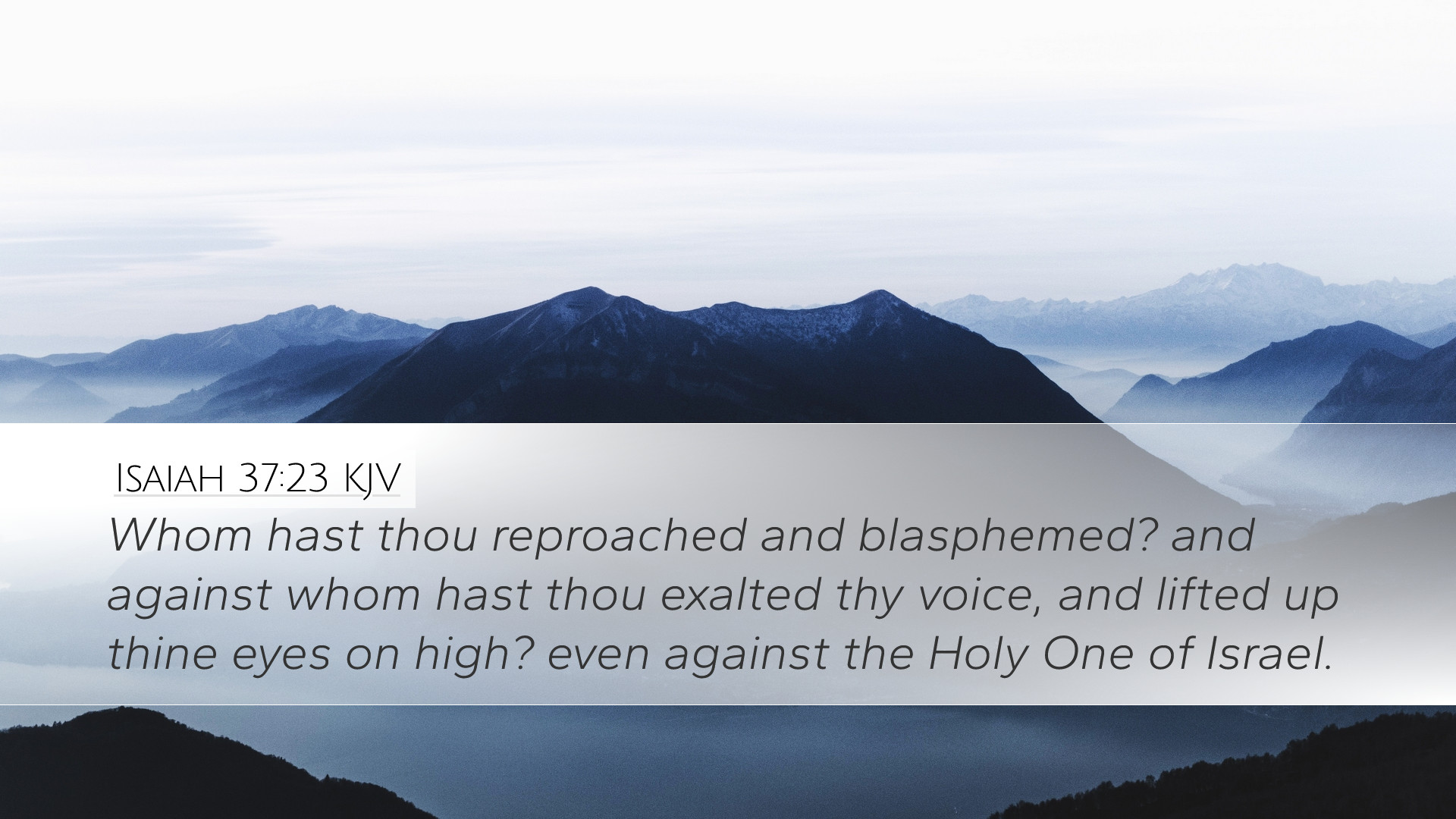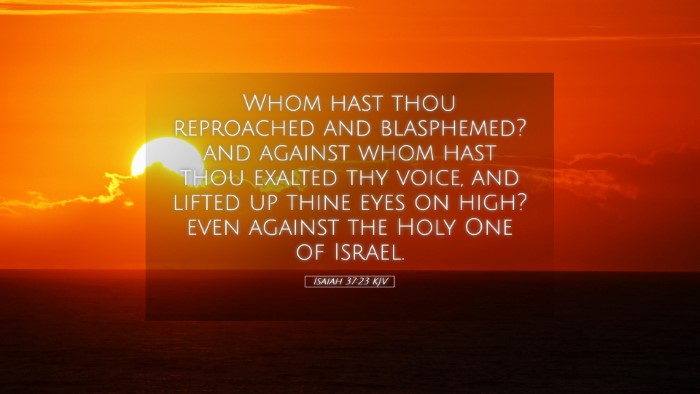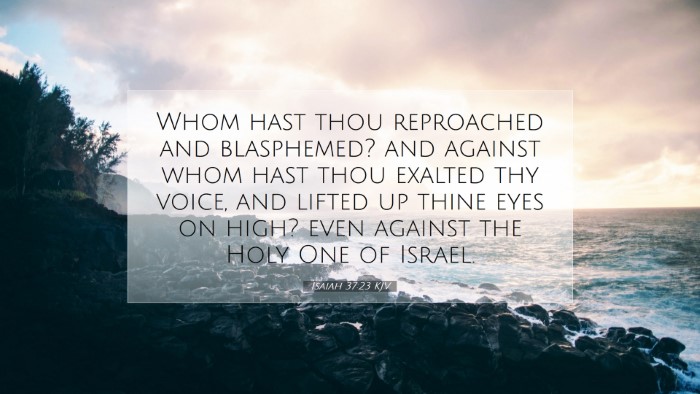Commentary on Isaiah 37:23
Isaiah 37:23 says:
"Whom hast thou reproached and blasphemed? and against whom hast thou exalted thy voice, and lifted up thine eyes on high? even against the Holy One of Israel."
This verse forms part of a larger narrative within the book of Isaiah, where the prophet delivers messages of judgment, comfort, and the sovereignty of God. It occurs in the context of King Hezekiah's plea for help against the Assyrian threat under King Sennacherib. The context is critical in understanding the depth of this verse and its implications for faith and divine authority.
Commentary Insights
Divine Challenge to Idolatry
In this verse, God poses a rhetorical question to the Assyrian king, highlighting the absurdity of his boasts against Israel and therefore against God. According to Matthew Henry, this challenge accuses Sennacherib of arrogance in his belief that he could reproach the One who is supremely sovereign over all nations. His blasphemous declarations against the Holy One of Israel reflect the common idolatry and pride found in human rulers who forget their frailty in the face of divine power.
The Nature of Blasphemy
Albert Barnes explores the nature of blasphemy in this context. He defines blasphemy as not merely a verbal offense but as an affront to the character and sovereignty of God. Sennacherib’s mocking questions represent a broader challenge to God’s power that, as history demonstrates, leads to dire consequences. Blasphemy arises from a heart filled with pride and a misunderstanding of God’s omnipotence.
The Sovereignty of God
At the core of this verse is the emphasis on the sovereignty of God as the "Holy One of Israel." Adam Clarke asserts that this title signifies not only God’s holiness but His unique position in covenant relationship with His people. The reproach of the Assyrians was not only against Israel but directly against the covenant God who protects and defends His chosen nation. This verse serves as reassurance to believers about God’s ultimate control over earthly powers.
The Human Response
The question posed by God through Isaiah calls for a reflection on the human response to divine authority. Matthew Henry encourages leaders and individuals alike to recognize the folly in challenging God's authority. The consequence of such blasphemy is illustrated throughout the Hebrew Scriptures, offering a solemn warning that those who elevate themselves against God will inevitably fall.
The Call to Reverence
This passage serves as a call to reverence towards the divine authority of God. Albert Barnes notes that recognizing God as the Holy One of Israel calls the faithful to a deepened humility and allegiance to God’s will. This understanding is crucial for spiritual leaders and individuals who seek to embody the true essence of faith in their lives.
Theological Implications
God’s Zeal for His Glory
Isaiah 37:23 illustrates God’s zeal for His own glory in the face of human arrogance. Adam Clarke expounds on how God is protective of His name and reputation. The Lord’s response to Sennacherib’s boastful challenges illustrates the profound truth that God will not allow any other entity to diminish His glory.
Encouragement for Believers
This verse serves as a source of encouragement for believers, emphasizing that no matter the threats they may face, God's ultimate authority prevails. Matthew Henry expresses how this truth is a firm foundation for the faith of God's people, reassuring them that He hears their cries and acts in accordance with His will.
Practical Application
In practical terms, pastors, students, and theologians can draw from this verse significant lessons on reliance upon God in adversity. Albert Barnes encourages the faithful to confront their adversities by affirming their trust in God, understanding that true strength lies not in human capabilities but in the divine protection and providence.
Conclusion
Isaiah 37:23 encapsulates a profound confrontation between divine sovereignty and human arrogance. By meditating on the insights offered by public domain commentators such as Matthew Henry, Albert Barnes, and Adam Clarke, readers can glean deep wisdom regarding the nature of God, the seriousness of blasphemy, and the importance of reverence. This passage serves as both a warning and an encouragement, urging believers to honor God as sovereign and holy, while trusting in His ultimate control over all situations.


